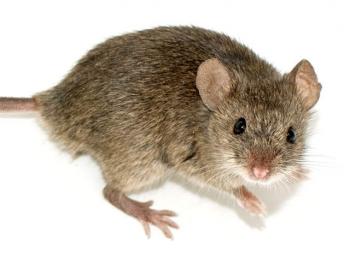Ask Professor Puzzler
Do you have a question you would like to ask Professor Puzzler? Click here to ask your question!

There's another stunt that has been used recently to promote fake news, and it involves the website archive.org, which is basically an archive of everything that's ever been on the internet. That's right - if you posted a sappy love poem to your childhood sweetheart back in 2001, it's probably still out there, just waiting for someone to discover it in 2020.
There are sites out there (medium.com is one example) which allow anyone to post on their site. In fact, Medium posts a notice that looks like this:
So someone who wants to promote fake news can go to a site like Medium, create an account, and post whatever they want. Now, Medium makes it clear they're not going to fact-check everything, but if enough people complain about an article, they'll run it through their editorial process, and if they find that the article is bogus, they'll remove it. In fact, they'll replace it with a notice that looks like this:
So the fake-news purveyor has wasted his time, right? Not at all! He probably assumed that would happen. That's where archive.org comes in. If his article remained on Medium long enough for Archive to scrape it, it now exists, and will forever exist, as part of the internet archive. So all he has to do is start sharing the version of the article on Archive.org.
So now, when you are scrolling through your social media account, and you see an article that looks interesting, before you click on it, check to see what the source is. "Archive.org" sounds like an impressive source, but if someone is sharing it from the internet archive, it's almost guaranteed that means the article has already failed a fact-check somewhere else.

Have you ever wondered why news sites will occasionally put the word "Report" in their headlines? For example:
Report: Abraham Lincoln Thinks the Internet Is Dumb
or
Alien Spaceship Lands in New York City: Report
These headlines are, of course, a bit silly. But why is the word "Report" in there? Here's an example of why this might happen:
The New York Times does some investigative journalism and discovers that Cinderella is actually as mean and nasty as her wicked step-sisters, and spends her weekends beating up kids at playgrounds and feeding cyanide to pigeons (with all due respect to Tom Lehrer). So they write up a major news article about Cinderella and her weekend habits.
Now someone at CBS catches this story and thinks, "Our readers should know the truth about Cinderella, too!" Unfortunately, no CBS reporter has actually independently verified the details of the story. Under these circumstances, CBS might publish a headline like this:
Report: Cinderella Kills Pigeons
Then somewhere in the article (usually in the first paragraph, but not always), there will be a phrase like this: "according to a new report by NYT..." If it's an online article, that phrase will likely be a link to the original New York Times article.
The addition of the word "report" into the headline does two things for the news site. First, it allows them to acknowledge that they're using someone else's information. But also, it allows them to maintain some deniability. "We're not saying this ourselves, we're just telling you what someone else said," is the implication.
It can be dangerous, because it does allow dishonest sites to get away with all sorts of false reporting. If I can find someone (anyone) who claims that the wicked witch was not planning to eat the children, I can create a headline like this:
Report: Gretel Burns Innocent Woman Alive
In other words, if you are unscrupulous, you can get away with passing off a rumor as a news story.
Fake news sites and Fringe news sites have been using this technique for years, because they understand some very important psychology:
- If you want someone to believe something, put it in the headline, because most who see the headline as they're scrolling through their social media will not click through to read the story. There have been studies done on this: Americans are relying more and more on headlines to get their news. According to an API study done in 2014, less than half of Americans surveyed read past the headlines in the last week. If you think that statistic has gotten better in the last six years, then: "Report: I've got a bridge to sell you."
- Even if they do click through, the headline itself has framed the reader's understanding in such a way that they are prone to accept the reporting as factual, even if it turns out that the source is utterly unreliable. (Check out the following New Yorker article, which examines an APA study on this topic).
For fake news sites, this is a win-win situation. Whether the person reading the headline clicks through to the article or not, their perceptions of reality have been changed. And if they do click through, the fake news site earns money from advertising. I've been watching fringe news sites do this for several years, and they are getting very good at it. Pay close attention to every article you read, and evaluate the reliability of their sources. Resist the temptation to read a headline and scroll on without investigating. If you read a headline, and don't have time to read the article, assume it's not true (particularly if you're not familiar with the source). Once you find a site that regularly uses techniques to pass off rumor as truth, avoid clicking through to their articles - do your part to help dry up their revenue sources.

When I was a child, the newspaper meant one thing: comics! My brothers and I would race to see who could get the section containing the "funny pages" first. The rest of us would have to wait impatiently while the winner guffawed over the antics of Beetle Bailey, Nancy, Andy Capp, and many others.
As I grew older, I started to get more curious about what was going on in the world (read my previous blog post about sixth grade to find out why I got interested in current events), and so I began to look at the first section of the paper to see what the news headlines were, and maybe read a story or two. I might start in reading a story about a hostage situation on page one, and when I'd get to the end of the column of print, I'd see a bold line of text that read: "See HOSTAGES, Page 8". Dutifully, I would flip to the end of the section to finish the story. While I was there on page eight, I would notice other news stories.
These stories were not about hostages or economics or foreign policy; they were stories about an actor who broke his leg on the set of his newest movie, or about a man who lost his dog and found him three days later in a dance club smoking a cigar and flirting with a waitress.
One thing I understood without having to be told: the page one stories were important news, and the page eight stories, while they might be interesting, were just fluff. They were human interest stories that might catch my curiosity, but they didn't have any broader implications than that. The dog in the dance club was not going to significantly affect my life, or the life of anyone else except the dog's owner - and maybe the dance club owner and employees.
Sometimes those page-eight stories would creep onto the first page; there would be a column that devoted an inch or two to a page-eight story, followed by, "See DANCE DOG, Page 8". But these column inches were always below the fold, and I knew before I started that it was actually a page-eight story, even though it started on page one.
I didn't think about it at the time, but I was putting trust in the journalistic integrity and capability of the people who organized the articles in the newspaper. I was trusting that the most important stories would show up above the fold on page one. The corrolary to that was, if I never got around to reading page eight, it wouldn't really matter.
These days, a very large chunk of the population doesn't read print newspapers (including myself). And for people who read news online, there is no such thing as a Page-Eight Story, because the internet isn't organized into pages in the same way that a print newspaper is. There is no page one, page two, page three, etc. There is only "the home page" and "all the other pages." So how do news sites indicate which stories they think are most important?

Web development has stolen terminology from newspapers; just like a newspaper, we talk about content being "above the fold" or "below the fold." Of course, a website doesn't have actual folds, but when we say "above the fold," we're talking about content that is visible immediately, without scrolling. Content that is below the fold is content which you can't see without scrolling downward.
For example, to use a major news site - The New York Times - when I visited their home page yesterday, the above-the-fold story was about US relations with North Korea. The story about everyone waiting for a giraffe to give birth on live camera was below the fold. In fact, it was way below the fold. I had to scroll down at least three full pages to find it.
Last week, while the above-the-fold story was about Mosul, if you wanted to read about people going bananas over Kellyanne Conway putting her feet up on the Oval Office sofa, you had to go well below the fold to get it.
This is what I expect to see. Mosul and Korea are page one stories. Giraffes and Kellyanne's feet are page eight stories. Bravo, NYT! In my opinion, you did your job, and you did it well.
So why is this a eulogy for the page-eight story, if it still exists, just in a different form?

Because the page-eight story has been murdered. It has been brutally butchered and left for dead, dragged unceremoniously onto the front page, like the dead mouse your cat dragged in from the outdoors and plopped onto the sofa. The culprit in this vicious homicide is not the mainstream media. The culprit is you, and the culprit is me. We are all the perpetrators of this heinous crime. You probably didn't realize it, but you need to realize it, so you can stop perpetrating it.
Let me explain. Did you realize that most people don't care what's happening in Korea? Or Mosul? Most people would rather talk about feet on sofas and giraffes giving birth. These stories are the grown-up version of racing for the comic pages. So here's what happens on a daily basis:
The Newspaper Readers
The people who actually visit news websites scan through headlines, read an article here or there, and then think "My friends would like to read this story, so I'm going to share it on social media." But which story do you think your friends want to read? The story about North Korea? Or the story about Kellyanne's feet? The answer, of course, is that most of your friends don't want to read about Korea; they want some juicy gossipy story that they can whine about and feel superior about. So you share the page-eight story instead of the page-one story. You don't think anything of it, and it never occurs to you that thousands of other people are doing exactly the same thing as you, and that you are, in effect, turning the page-eight story into a page-one story. That story is the dead mouse that your cat proudly dropped onto the sofa for everyone to see. It doesn't belong on page one. The journalists didn't put it there. You did!
The Social Media Readers
The social media readers get all their news from Facebook. So unless they've got friends who recognize a dead mouse when they see one, they know absolutely nothing about North Korea or Mosul. But they know everything about Kellyanne's feet and giraffe births. It never occurs to them that the journalists behind the story considered it a page-eight story, and hoped that you would take time to read about Mosul before you went on to lesser stories. So they read the story, find it amusing, and probably share it with their friends. So the foot story goes viral, while the North Korea story lies dormant.
The Result
Sooner or later, everyone starts asking the question, "Why is the mainstream media reporting this? This isn't news!" or "Hey! the mainstream media is trying to distract us from important stories. They're *gasp* FAKE NEWS!" In essence, we start saying, "I can't believe CNN/New York Times/Washington Post put this dead mouse on my sofa!"
Uh...NYT didn't put that there. Your friends did. And you did. You are the one who decided a below-the-fold story was more interesting and more important than an above-the-fold story. The journalists did their job, and you undid it!
We need to come to terms with the fact that news doesn't work the way it used to. In the age of social media, we are all journalists. We all make editorial decisions about what's important enough to share, and what isn't. We can't blame the "mainstream media" for bad journalistic choices when we are the ones who have made those bad choices.
Let's resurrect the concept of a page-eight story. Share thoughtful, important stories on social media, and let the below-the-fold stories be a special treat for those people who actually chew their way through the steak and potatoes of the above-the-fold news. Because the page-eight story wasn't intended to be a dead mouse; it was supposed to be a dessert for the faithful few who eat their supper. Be wise about how often you share those stories, remembering that you too are a journalist.
The choice is up to us. The newspapers have always reported page-eight stories, and they're not going to stop just because we've stopped recognizing the difference between the important and the trivial. Be a good journalist in the age of social media.
First of all...sorry about the click-bait title for this post. You'll see why in a minute.
Second...today I'm not answering a question from a visitor; I'm putting on my cranky-old-man hat and griping about something that concerns me deeply.
Yesterday New York Times had an article in which President-Elect Trump's aides said that he was considering (once in office) spending his weekdays at the White House, but on the weekends living at either his Trump Tower, his golf course in NJ, or his Mar-a-Lago estate.

OccupyDemocrats then did what any good clickbait site would do - they grabbed a couple sentences from the news report, built conclusions from it, and gave it a sensational (and inaccurate) headline: "Trump just announced he won't live in the white house full time, wants to golf and relax."
If you don't see a difference between what NYT reported and what OD reported, think it through very carefully - I think you'll see that there are important differences. NYT said it's what he's considering; OD said it's what he has announced. NYT simply stated where he was considering living on the weekends; OD made assumptions about what he would do while he was there. To make it even better, they found a nice picture of Mr. Trump golfing, to help add to the overall impression of the headline.
Certainly, I think it's possible, based on all that we know of him, that Donald Trump may be expecting to take a vacation every weekend, but that is not what his staff said, and to declare it as fact is nothing short of dishonest.
Of course, OccupyDemocrats is not alone in this kind of non-reporting. ConservativeTribune, WesternJournalism, USUncut, and many others, are guilty of this as well. The prevailing idea of journalism seems to be: find a news report on a "respected" news site, grab a sentence or two out of context, sensationalize it, and then give it an even more sensational headline in order to get people to click-through from social media.
I used to waste so much time reading Conservative Tribune articles my friends shared on social media, and researching the context of whoever they quoted, so I could tell my friends whether the article was false. Eventually, I realized that, for my own sanity, I needed to block this site from my facebook feed (notice, by the way, that I refuse to call it a newsfeed). I haven't seen a CT article in months, and I consider my life to be very much enriched for the lack.
So here's where things get really ugly, because we're going to talk about site popularity. A few weeks ago, Alexa.com posted in their statistics that this site (TheProblemSite.com) has broken into the top 100,000 most popular sites in the country. Using the estimate that there are a billion websites in the world, this puts us in the 99.99 percentile among US web users. I was pretty excited about that. But...that same site puts OccupyDemocrats in the top 1000 (99.9999 percentile), and ConservativeTribune at...are you ready for this? #52. There are only 51 websites in the world that are more popular than CT among US visitors, according to Alexa. That puts them at 99.999995 percentile.
Alexa says that CT has about 1.8 million visitors every day, and about 100 million page views every month.
In one month, CT gets 19.2 million UNIQUE visitors (96.7% of which are from the US). Unique means, if I visit twice in one month, I only get counted once. So about 6% of the US total population is visiting CT each month, and presumably assuming they've received a dose of news for the day. That's just ONE of these sites. What do you suppose the percent would be if we included ALL the sites like that (both the conservative ones and the liberal ones), and not just CT?
And that's just the people who actually click a link somewhere to visit their site. How often have you scanned your facebook feed and seen a headline from one of these sites and moved on without clicking? You're a person who has been "reached" by one of those sites, who does not count in their "reach" statistics. Did you assume you were looking at a news headline when you scrolled past it? Did you assume it must be true?
We complain all the time about "the media," but we don't have a whole lot to complain about if we're getting our news from entertainment sites instead of news sites. It's not much wonder we've become so divided and divisive if, after choosing sides, we gravitate toward the most extreme and dishonest sources to get our information.
I get that all news sources are biased, in the sense that they don't just give us facts, they also make choices about which facts are significant enough to be reported, and also give analysis of what they think the facts "mean" in the grand scheme of things. But biased is a whole different league from un-fact-checked click-bait that exists to serve as an echo chamber for people who already know what they think about everything.
Let's make a commitment. It's not easy, but it's only three steps:
- Begin a daily mantra: "I saw it on social media, so it's probably not true. I saw it on social media, so it's probably not true. I saw it on social media, so..."
- Every time you see a new "news" source, carefully research the first three articles you see from them, and if you can find even one blatantly dishonest statement in those articles, block the site from your social media.
- At the same time, explain to your friend WHY you're blocking the site they just shared. To make it easy, of course, you're welcome to share this article - we won't complain!
The truth is, sites like this aren't breaking the internet; they are breaking the nature of political discourse, and we are complicit. Yes, they are culpable, but so are we, every time we mistake an entertainment site for a news site. Let's start doing better.
Update, Nov 15, 2016 Cheyanne wanted some elaboration on #2 - How do you fact check? What do you compare to, considering how biased everything is? Here is my response to her:
There are a few different things you can do. In the case of the example above, I went to NYT, which is the site that OD quoted, and it was easy to see that they were simply taking what NYT reported and misrepresenting it. That's not to say NYT ISN'T biased, but when you find a site that deliberately misrepresents what they've said, you know that site isn't just biased, but downright dishonest.
Also, I often find articles that have short snippets of speeches, and I'm always suspicious, and go find a transcript (or video) of the ENTIRE speech, so I can find the quote in context, to see if the site is treating it fairly. For example, the number of times I've found conservative click-bait sites guilty of deliberately taking Obama quotes out of context is both embarrassing (speaking as a conservative) and appalling (speaking as a human being who cares about truth).
I also make use of custom date searches in search engines. For example, recently, there's been this thing floating around that Kurt Cobain predicted the rise of Trump. I grabbed a phrase from the supposed Cobain quote and put it into google, with quotes about it. Then I clicked the "tools" link, and "Custom date Range" to tell it I only want results from Jan 2000 - Dec 2014. Google tells me there are no results. Turns out that quote first showed up in 2015, which is a problem for Cobain, who has been dead since 1994.
If you got to this page by way of Facebook, or other social media, you probably got here by clicking on an image that looks like this:

This is an image I pulled off Facebook, and tweaked the text at the bottom. The person in the image is television host and political commentator Rachel Maddow. The original text (before I modified it) read: "Trump supporters, protestors clash in Chicago/Violence erupts inside postponed rally."
So let me explain what's going on here. Facebook allows web desigers to make use of something called "open graph" icons to give people a hint of what the post is about. If you assign an open graph icon to your blog post, when someone shares it on facebook, that image is what appears in their facebook feed, above the page's title and description.
But dishonest websites like to "trick" people into clicking their links. They think, "Oh, my article isn't interesting enough that people will want to visit my page. But if they think it's a video, they'll click it, because they think it'll play right in their Facebook page without loading an entirely new page. So I'll take a still shot from a video, make sure it has the little red play icon in the middle, and it will be completely indistinguishable from a video!" (There's even a WordPress plug-in that'll help you create that "here's a video" deception.)
An icon is "a person or thing regarded as a representative symbol of something." Icons have meanings. The little red rounded rectangle with a triangle in it has a specific meaning. It means "This is a video. Click to start watching." It does not mean, "Hey, my website has a video, and if you click here, I'll show you about 500 ads, and then, if you can manage to locate it, you can click another arrow icon that means what you expected this one to mean."
Why didn't they just post the video? Because if they post the video, people might not click through to their website, and if people don't click through to their website, they won't get ad impressions on their site, and they won't get revenue.
And the "pretend video" image isn't the only kind of click-bait out there, of course. You have articles with titles like, "You won't believe what happened next..." and "This will completely destroy Obama's presidency..." and "This video had me crying at 1:24..." and you can't resist the urge to click, even though you know it's not going to make you cry, it's not going to end anyone's presidency (or candidacy) and when you've finished reading/watching, you're going to wish you hadn't wasted your time.
But you just can't resist clicking...
To make matters worse, many click-bait sites masquerade as right-wing "news" sites or left-wing "news" sites. I say "masquerade" because most of them have no inclination to do any fact checking. They expect you to do their fact checking for them. Actually, scratch that. They don't expect any such thing. They assume that you'll see their page, recognize that they hold to the same core left/right values as they do, and therefore assume that anything they say must be true.
The only thing that's more insane than the stuff that gets reported on these "news" sites is the masses of people who - apparently without thought - like and share it.
Don't be gullible. You're a smart person. You know how to think for yourself, and do a little research.
My general policy is, when I see click-bait titles or "fake video" images, I don't click them, because I don't want to help click-bait sites get any income. The more we encourage them, the more they proliferate. But in this case, since I've been wanting to write this blog post, I bit the bullet and clicked through.
The page I got to when I clicked the "breaking news" image was so filled with advertising that when I found the actual video on the page, the video would not stop scrolling out of view over and over again for about 20 seconds, while advertising filled in all around it. I'm not exaggerating.
There was a brief associated article, which said absolutely nothing that added anything to the video. That in itself ought to cause you to ask: "Why does the page even exist?"
The answer is: the page exists to earn money. And that's not necessarily a bad thing. But, if a page exists only to earn money, adds no value to content that exists elsewhere, places no value on positive user experience, or places no value on truth, then it's a page that probably shouldn't exist.
The problem is, once people have been sucked into the vortex of a click-bait site, if they like the video (or other content) they saw there, they feel as though their best option is to share it from the depths of the cesspool.
But here's the thing. You're not stuck sharing their version. Because you're a smart individual, and you value your friends far too much to make them suffer through the same foolishness that you just suffered through. You're intelligent enough - all you have to do is run a search engine query to find a better version of the content somewhere else. In fact, you already did that when you fact-checked the content! (Right?) In the case of my example, I just searched for "Rachel Maddow Trump protest" in google, and found the original video.
Share original content, not desperate click-bait copycats. All your friends will thank you.
And then, just to complete your helpfulness, go back to facebook, find the click-bait link you clicked on, and report it to Facebook, telling them that it's spam, or that it's unhelpful content, or whichever reporting option you find most appropriate. Facebook actually has stated on their blog that they want to eliminate click-bait, and are steering their algorithms in that direction. Give them a helping hand.
Please do your part to resist click-bait. Because you're smarter than that.

